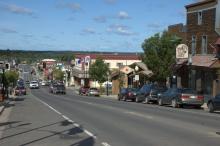Ely, Minnesota, Considering Pilots To Answer Big Demand For Better Connectivity
Last fall, the northern Minnesota community of Ely took up a feasibility study to determine the possibilities of better connectivity with publicly owned Internet infrastructure. They also wanted to explore local interest in investment. After conducting a survey and reviewing the situation, local officials are contemplating moving ahead with two pilot projects.
A Big Demand
Citizens’ group, Ely Area Broadband Coalition (Ely ABC) and the Ely Economic Development Authority (EEDA) collaborated to manage the feasibility study process. In 2016, the Blandin Foundation, the Iron Range Resources Rehabilitation Board (IRRRB), and St. Louis County awarded the city $25,000 which they’ve dedicated toward their efforts to improve local connectivity.
In order to gauge the community’s current feeling about the quality and cost of the services they purchase from area cable and DSL providers, the Ely ABC and the EEDA encouraged area residents and businesses to compete a survey last fall. They wanted evidence to share with potential funding sources that the community was not being served. Community leaders also expected the results to help them decide which direction to take moving forward.
At a recent EEDA meeting, members discussed the survey results and the potential pilot projects.
“We want to see how people are satisfied with what they have and what they feel the needs are,” said Harold Langowski, the city’s clerk-treasurer. “Right now we are assuming everybody wants faster broadband. and that they’re not satisfied with what we have. But we’re only hearing that from people on the committee.”




 The city’s effort to bring better connectivity to a wide range of businesses and residents included a pilot project in West Plains’s Southern Hills district. In the fall of 2017, the city offered gigabit Fiber-to-the-Home (FTTH) connectivity to approximately 80 businesses and 14 residences as a way to work out potential issues and refine their services.
The city’s effort to bring better connectivity to a wide range of businesses and residents included a pilot project in West Plains’s Southern Hills district. In the fall of 2017, the city offered gigabit Fiber-to-the-Home (FTTH) connectivity to approximately 80 businesses and 14 residences as a way to work out potential issues and refine their services.